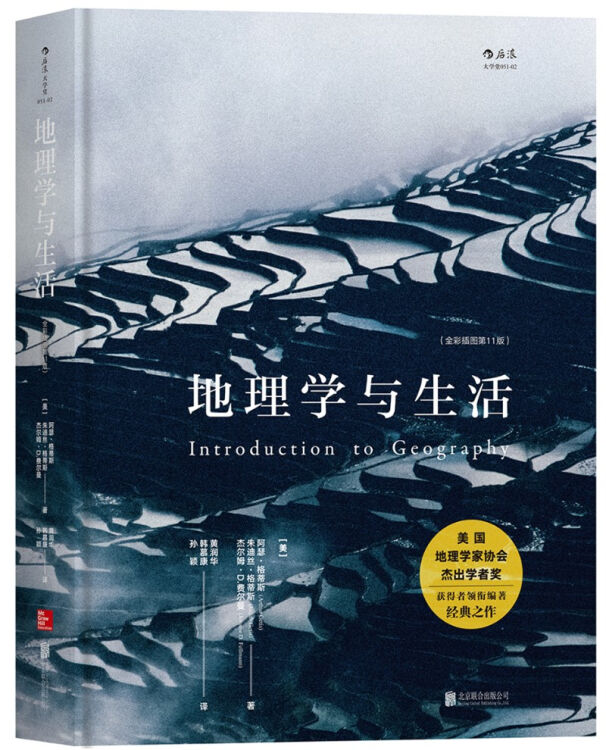Extensive attention paid to geography and geographical problems is vital for people to understand national and international issues reported in daily news.
— Introduction to Geography, a prize-winning book from the Association of American Geographers’ Honours

Devastating Australian bushfires, the ongoing COVID-19 pandemic, locust plagues in East Africa, and record high temperatures in the South Pole have all seized worldwide attention.
In each case, truly understanding the severity and importance of these events requires a familiarity with relevant geographical knowledge.
In any geographical context, ‘location’ is key. For example, Australia is in the southern hemisphere and the South Pole is far away from us. Understanding ‘where it happened’ is the initial basis for solving any geographical problem, allowing us to consider the wider issues without forgetting the specific context of their spatial locations.
Furthermore, ‘
why it happened there’, ‘what effects it brought’ and ‘how to solve the problem’ are also crucial aspects that we need to consider.
When considering the COVID-19 pandemic, many forms of geography will help us better analyse the issue, such as population geography, political geography and economic geography. When analysing news reports about the pandemic, many of the same key words will be used, such as wildlife, population density, globalisation, World Health Organisation, economy, tourism, to name a few. These are also covered in the scope of geography.

As
geography is a discipline that focuses on changes and connections, it helps us to gain a complete, objective and rational understanding of this pandemic or any similarly complex event. By looking at current affairs from a geographical perspective, it is possible to more fully appreciate their importance and lasting impact.
The process of understanding current events and explaining their phenomena not only sparks pupils’ interest and consolidates what they have learned, it also cultivates their geographical thinking patterns and skills, enabling them to solve practical problems more effectively.
Complicated goals generally cannot be achieved through one simple action. Therefore, in geography we conduct multiple discussions based on a single issue.
For example, when the Australian bushfires occurred, our grade 6 pupils considered the publicly available facts regarding this whole catastrophe, discussing whether it was a natural disaster or a man-made calamity. When the locust plagues broke out, those in grade 7 studied geographical topics that were included in news reports, such as international organisations, global warming and natural disasters. They delved into these topics through asking and answering open-ended questions by themselves. Based on what they have learned before, pupils conducted a group learning project entitled ‘pandemic and geography’ during their recent independent learning sessions. They needed to design an analysis question along with reference answers by collecting materials online. The question needed to be related to the pandemic in a geographical context, which let pupils demonstrate their geographical knowledge, skills and values.

▲ Hiba pupils’s themed project
This task allowed pupils to demonstrate what they had learned in a practical and engaging way. More importantly, it showed their ability to think independently and critically about world events and their consequences.
We acquired geographical knowledge and improved our ability to conduct online surveys, work in a team,
think critically as well as understand current social situations comprehensively from the perspective of physical geography, social geography and applied geography. ——
Hui house, Selina
This open-ended task was challenging but we learned a lot thanks to the freedom that we were given. Designing an examination question makes it easier for us to remember knowledge points. It was also an original method to
analyse international issues by using geographical knowledge.——Xian house, Nate
Current affairs are often complex and everyone has their own opinion on them. I think our geography classes are a good channel to teach us how to consider and analyse problems calmly and impersonally. I love geography, especially since it allows us to explore fascinating situations that
genuinely affect us in real life.——De house, Maggie
The discipline of geography has an extensive research field, ranging from natural science to social science, and covers regional, national and global issues. Everything we discuss in geography has real-life context and importance.
This makes current events an excellent source of planning for an open-ended geography curriculum while promoting diversified learning approaches.
At Hiba, we try to remove the gap between learning and real life by utilising up-to-date materials such as current events, to spark pupils’ learning interest and extend their knowledge.
This combination of absorbing theory while conducting practical exploration will help pupils to develop their thinking ability and widen their world view. This is something we feel is essential if our pupils are going to
become knowledgeable, responsible global citizens.



